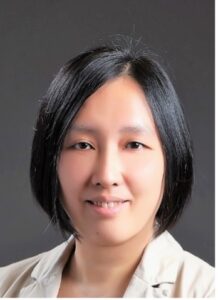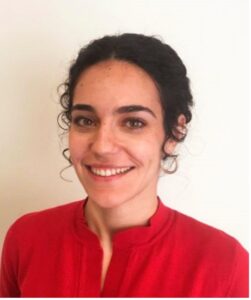Officers
Contact Frank Po-Hung Lin for more information
Email: frank.phlin (at) gmail.com
If you Wish to Become A Member
What is Visual Ergonomics?
Visual ergonomics is the multidisciplinary science concerned with understanding human visual processes and the interactions between humans and other elements of a system. Visual ergonomics applies theories, knowledge and methods to the design and assessment of systems, optimizing human well-being and overall system performance. Relevant topics include, among others: the visual environment, such as lighting; visually demanding work and other tasks; visual function and performance; visual comfort and safety; optical corrections and other assistive tools.
A description of the how the definition was developed is included in a Letter to the Editor published in Applied Ergonomics: “A definition of visual ergonomics”, available online 8 April 2014.
An easy-to-read article explaining the practical implications of visual ergonomics was developed by this Technical Committee and published in WORK (2014): 47: 419-420. Download a copy of the article.
What are some of the domains of interest of visual ergonomics?
- Visually demanding work tasks and leisure activities
- The human visual system and perception
- Environmental conditions e.g. illumination, indoor air quality
- Optometry and ophthalmology, e.g. vision corrections for people with normal vision and vision impairment, ageing vision, visual fatigue
- Visual displays and information design
- Workstation design, visual comfort and musculoskeletal disorders
What are the objectives of the Visual Ergonomics Technical Committee?
The objectives of the Visual Ergonomics Technical Committee are to:
- Facilitate international cross-disciplinary communication and collaboration among professionals with an interest in Visual Ergonomics
- Promote basic and applied ergonomic research within the domain of visual ergonomics
- Promote best ergonomics practice within the domain of Visual Ergonomics so that comfortable, safe and efficient work and
- Encourage high standards within academic and practical Visual Ergonomics education
Organizational Structure
The Technical Committee is a peer group of researchers, practitioners and educators without a hierarchical substructure.
Click here to download the list of TC members:
Visual Ergonomics TC_semi-annual report Jun 2022
Newsletters
April 2025 Newsletter
September 2023 Newsletter
August 2022 Newsletter
April 2022 Newsletter
December 2021 Newsletter
August 2021 Newsletter
April 2021 Newsletter
December 2020 Newsletter
August 2020 Newsletter
April 2020 Newsletter
December 2019 Newsletter
August 2019 Newsletter
April 2019 Newsletter
December 2018 Newsletter
August 2018 Newsletter
April 2018 Newsletter
December 2017 Newsletter
August 2017 Newsletter
April 2017 Newsletter
December 2016 Newsletter
August 2016 Newsletter
April 2016 Newsletter
December 2015 Newsletter
August 2015 Newsletter
April 2015 Newsletter
December 2014 Newsletter
August 2014 Newsletter
March 2014 Newsletter
December 2013 Newsletter
July 2013 Newsletter
April 2013 Newsletter
December 2012 Newsletter
August 2012 Newsletter
Achievements
June 2021:
- Organized two sessions on Visual Ergonomics with a total of 18 papers and 1 poster.
- Hillevi Hemphälä and Jennifer long organized a workshop on Visual Ergonomics and Lighting (22E)
- One joint symposium (18H) on Visual Ergonomics and Ergonomics in Design for all Symposium was organized by Jennifer Long with Isabella Steffan from the TC “Ergonomics in Design for all”.
- Marino Menozzi acted in the Scientific Committee for IEA2021
2018: Four visual ergonomics parallel sessions were delivered at the IEA World Congress in Florence, Italy (18 oral presentations and 1 poster). Selected written papers are published in https://link.springer.com/book/10.1007/978-3-319-96059-3
August 2015: Two visual ergonomics parallel sessions were delivered at the IEA World Congress in Melbourne, Australia (6 oral presentations and 5 posters). These papers can be accessed at https://iea.cc/congress/2015.html
March 2014: A special Visual Ergonomics edition of WORK: A journal of prevention, assessment and rehabilitation was published, and includes 15 articles related to visual ergonomics from authors in Australia, Scandinavia, the USA and Canada. The edition can be accessed at
http://content.iospress.com/journals/work/47/3
February 2012: Two Visual Ergonomics parallel sessions and one joint session with Work With Computing Systems were delivered at the IEA World Congress Recife, Brazil (13 oral presentations).
Are you interested in Visual Ergonomics? Would you like to keep up to date with Visual Ergonomics news from around the world?
Please email to Dr. Beatriz Redondo at beatrizrc@ugr.es if you would like to be on our mailing list.
(Tri-)Annual Reports for Visual Ergonomics
Election of TC Officers at IEA 2021, Vancouver, Canada (online conference)
Announcement: Election of TC officers at TC General Assembly Meeting on 14 June 2021
Action Plan
| Activities | Description | Responsible | Milestones /Timeline |
Deliverable /Timeline |
| Promote visual ergonomics | 1. Promote visual ergonomics on a political level
2. Increase the number of members of our TC 3. Keep the TC website content up-to date 4. Create a webinar on visual ergonomics |
Executive committee | 2022-2023 | 2022-2023 |
Further Links
https://www.linkedin.com/company/iea-visual-ergonomics-technical-committee/?viewAsMember=true
IEA VE TC in Linkedin
https://www.sciencedirect.com/journal/international-journal-of-industrial-ergonomics/special-issue/10G2JJTW6KJ IJIE special issue- Advances in visual ergonomics
http://content.iospress.com/journals/work/47/3 (Visual Ergonomics special edition)
http://content.iospress.com/journals/work/41/Supplement%201 for the IEA2012 congress papers.
https://link.springer.com/book/10.1007/978-3-319-96059-3 for the IEA 2018 papers related to visual ergonomics





